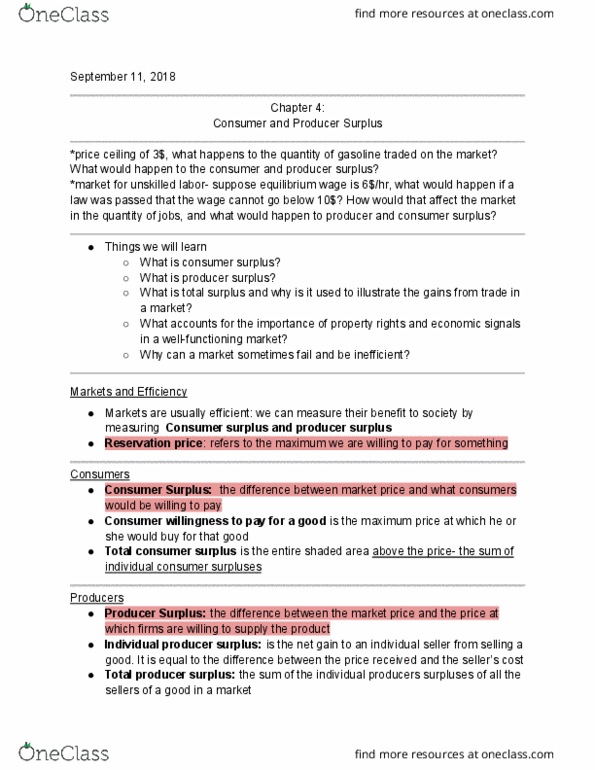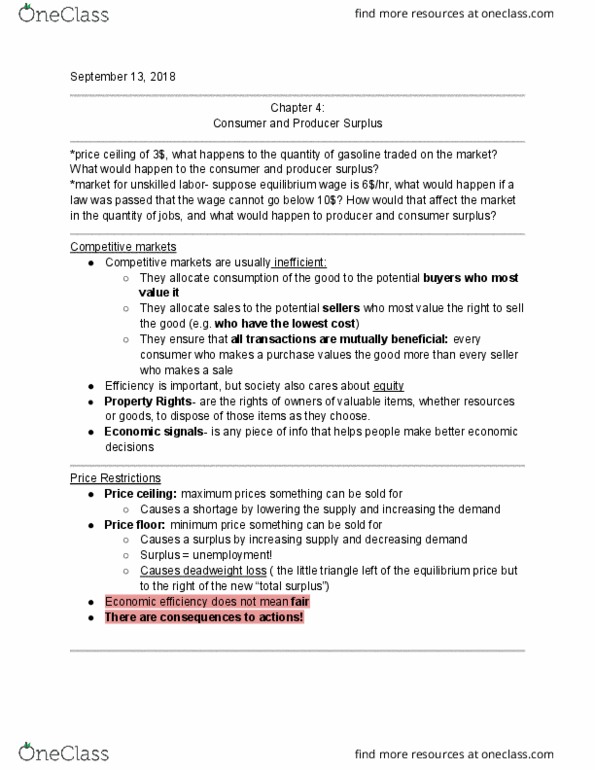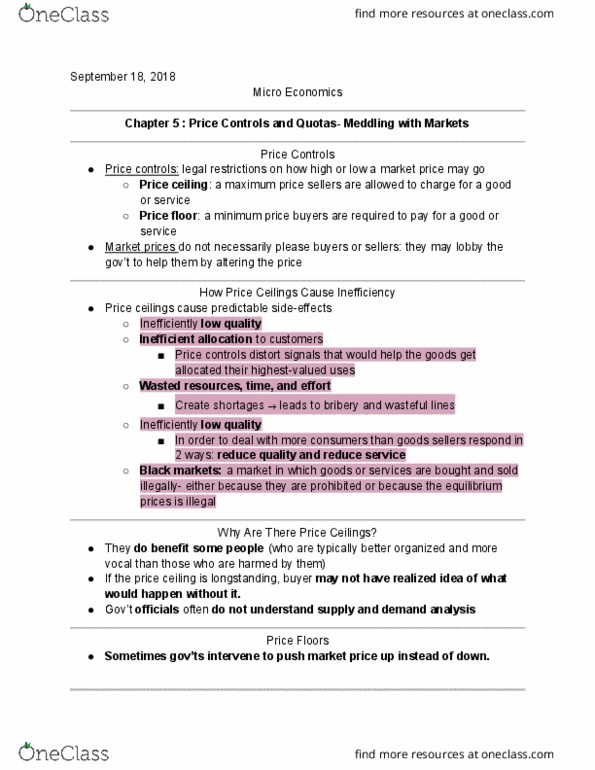ECON 1201 Lecture Notes - Lecture 6: Price Ceiling, Deadweight Loss, Economic Surplus
ECON 1201 verified notes
6/30View all

September 13, 2018
Chapter 4:
Consumer and Producer Surplus
*price ceiling of 3$, what happens to the quantity of gasoline traded on the market?
What would happen to the consumer and producer surplus?
*market for unskilled labor- suppose equilibrium wage is 6$/hr, what would happen if a
law was passed that the wage cannot go below 10$? How would that affect the market
in the quantity of jobs, and what would happen to producer and consumer surplus?
Competitive markets
● Competitive markets are usually inefficient:
○ They allocate consumption of the good to the potential buyers who most
value it
○ They allocate sales to the potential sellers who most value the right to sell
the good (e.g. who have the lowest cost)
○ They ensure that all transactions are mutually beneficial: every
consumer who makes a purchase values the good more than every seller
who makes a sale
● Efficiency is important, but society also cares about equity
● Property Rights- are the rights of owners of valuable items, whether resources
or goods, to dispose of those items as they choose.
● Economic signals- is any piece of info that helps people make better economic
decisions
Price Restrictions
● Price ceiling: maximum prices something can be sold for
○ Causes a shortage by lowering the supply and increasing the demand
● Price floor: minimum price something can be sold for
○ Causes a surplus by increasing supply and decreasing demand
○ Surplus = unemployment!
○ Causes deadweight loss ( the little triangle left of the equilibrium price but
to the right of the new “total surplus”)
● Economic efficiency does not mean fair
● There are consequences to actions!
Document Summary
They allocate consumption of the good to the potential buyers who most value it. They allocate sales to the potential sellers who most value the right to sell the good (e. g. who have the lowest cost) They ensure that all transactions are mutually beneficial: every consumer who makes a purchase values the good more than every seller who makes a sale. Efficiency is important, but society also cares about equity. Property rights- are the rights of owners of valuable items, whether resources or goods, to dispose of those items as they choose. Economic signals- is any piece of info that helps people make better economic decisions. Price ceiling: maximum prices something can be sold for. Causes a shortage by lowering the supply and increasing the demand. Price floor: minimum price something can be sold for. Causes a surplus by increasing supply and decreasing demand.







